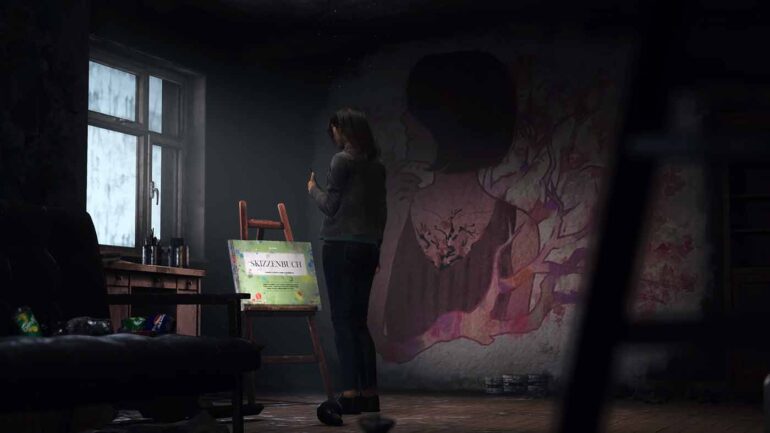[Editor’s Note: Silent Hill: The Short Message contains themes such as teen bullying, self-harm and suicide. These themes are also mentioned in the below. Player and reader discretion is advised.]
What even is Silent Hill at this point? I’m not entirely sure that even Konami knows. But I can respect them for trying something different and, much like Capcom, trying to revive one of their crucial legacy IP. Yesterday at the PlayStation State of Play, Konami revealed to the world that Silent Hill: The Short Message was available right then and there, and for free. It’d been a long day, but when I was done with The Short Message, I walk away with mixed feelings and question where the series is going.
In The Short Message, you play Anita, a depressed teenager visiting her friend Maya in a run-down, dilapidated apartment building in Kettenstadt, a fictional city in modern-day Germany. The town is in economic disrepair following the COVID pandemic, and many urban developers have abandoned the area. Once she arrives there, she collapses and wakes up to find the apartments abandoned. Armed only with her phone, receiving random text messages from two of her friends, she delves deeper into the building to find her friends, but of course, not before unpacking some kind of unexplored trauma.
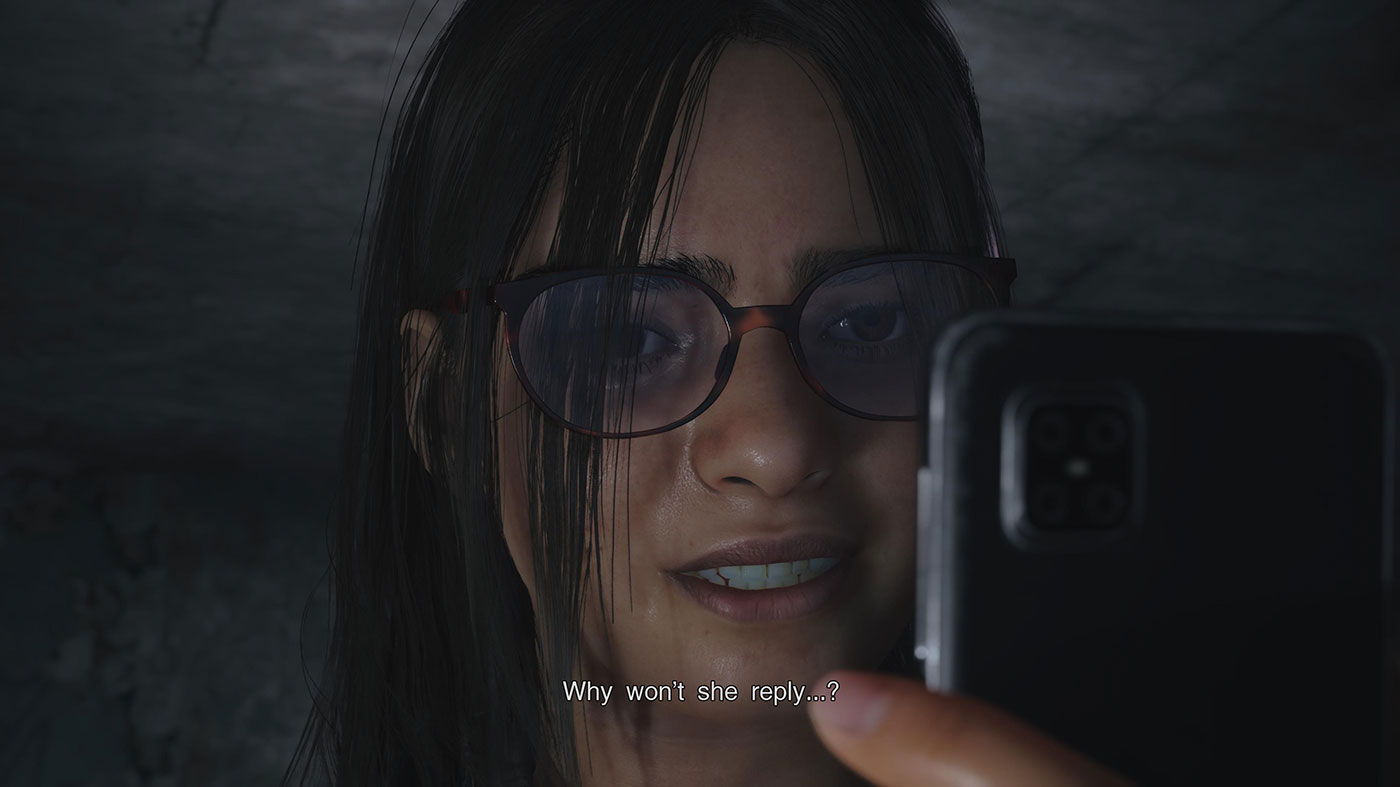
The Short Message is a heavy story; make no mistake. It deals primarily with themes of suicide – the apartment building that the game takes place in is a well-known suicide spot in Kettenstadt – but it’s also a story that’s been conceptually done to death in Silent Hill games prior. The Short Message makes the common mistake of basing its entire identity around Silent Hill 2, dealing with the sins of the past and the protagonist coming to terms with them. If you didn’t like any of the occult elements in the other three games, then fret not because, besides some light allusions in the files, this is all derived from Silent Hill 2. For better or for worse.
As a game, you play as Anita through three chapters as she explores the apartment building for clues about where her friends are. In a relatively novel approach, she’s armed only with her phone. It also acts as her torch, lighting the area in front of her. For the most part, The Short Message has you moving through areas while reading files as you uncover the mystery presented to you. It’s an incredibly basic take on a horror game that you’ve more than likely played in the last ten years.
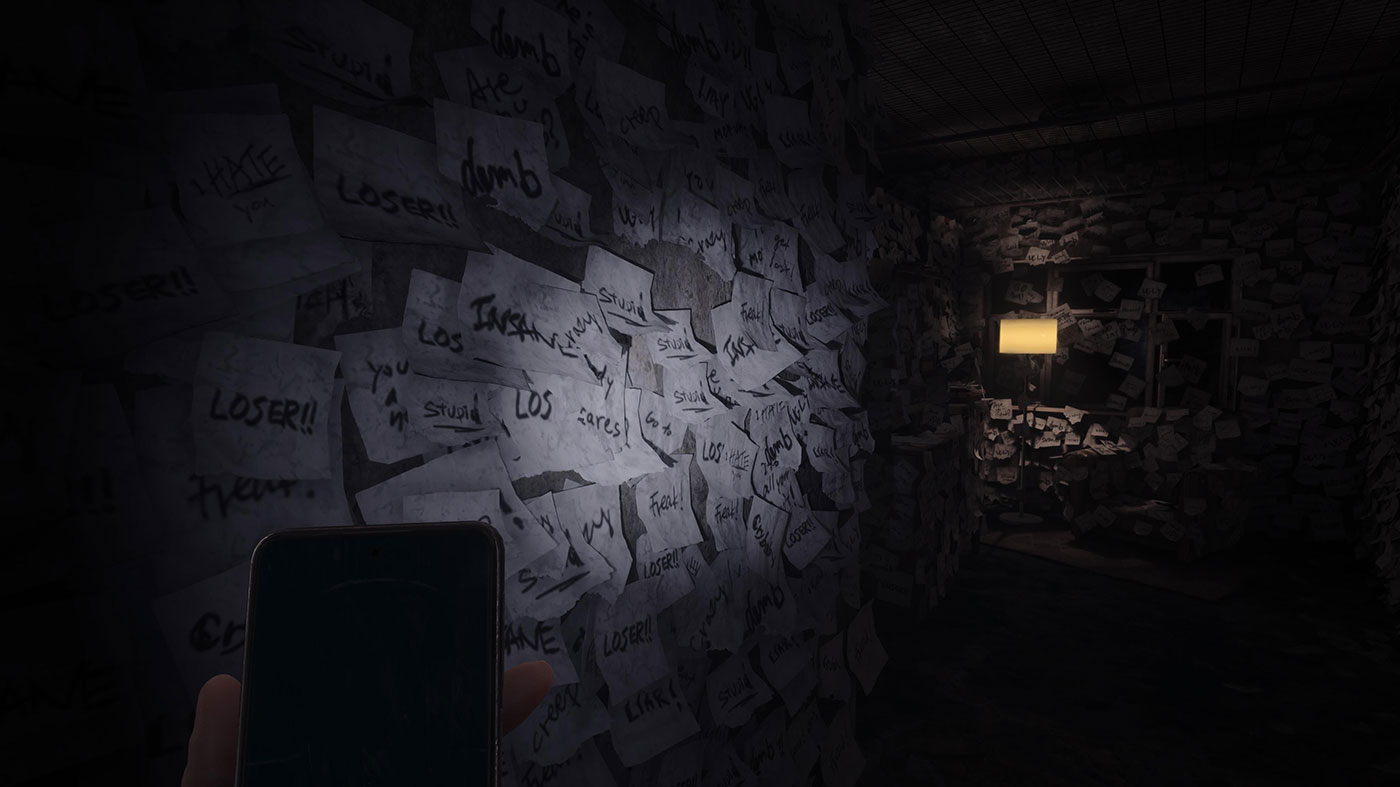
Sometimes, The Short Message pivots to be more interactive, but it’s not as interesting as I’d have hoped. In the first two major “gameplay” moments, you’ll be chased by a monster while you try to move your way through the world. The depth of mechanics in these moments has you luring it to one area before running around it to the next. The final area is slightly better but borrows heavily from games like Outlast, requiring you to collect five photos from an open area before moving on to the ending. It’s definitely stressful, but it’s missing something important – fun.
Horror games have recently enjoyed a resurgence, but The Short Message feels like those games everyone made when Amnesia became popular. No combat, exploration-based affairs where the only real conflict is running from something. It’s a shame, too, because The Short Message has so much potential. It’s a subject matter that’s rarely dealt with in games, and it’s got an especially novel gameplay gimmick in the mobile phone, but it’s seldom utilized. You’ll receive messages, press a button to send a canned response and go from there.
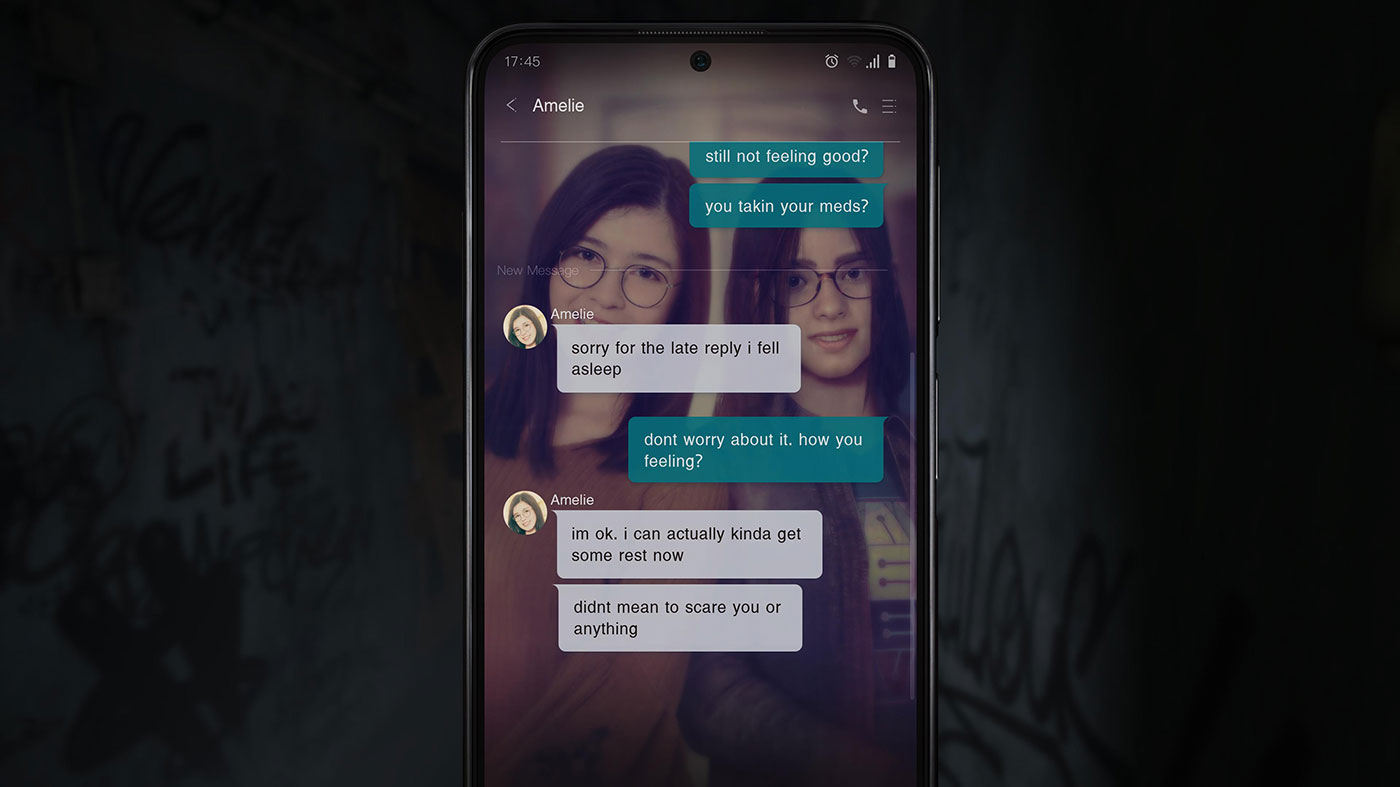
Games like Blair Witch have flirted with using text messages to instill dread in the player, but The Short Message falls flat. I’ll commend the game for having hardly any jump scares – such a temptation is rarely ignored in most amateur horror – but just as I was unnerved that, for example, the person I was texting in the game wasn’t perhaps a person, the game almost dropped that thread entirely. Not to mention the missed opportunity to have some physical horror – the game looks good enough to reflect things off of the phone screen – but this is never used to any effect to scare the player effectively.
Instead, The Short Message is trying to emulate the minimalist approach of the Resident Evil 7: Beginning Hour demo or, you guessed it, the now legendary P.T. demo. It’s almost shameful just how much The Short Message is lifting from both these experiences, but unfortunately, the art direction of anything besides the otherworld is lacking, and the horror element just isn’t there. I wouldn’t know if you didn’t tell me this was a Silent Hill game.
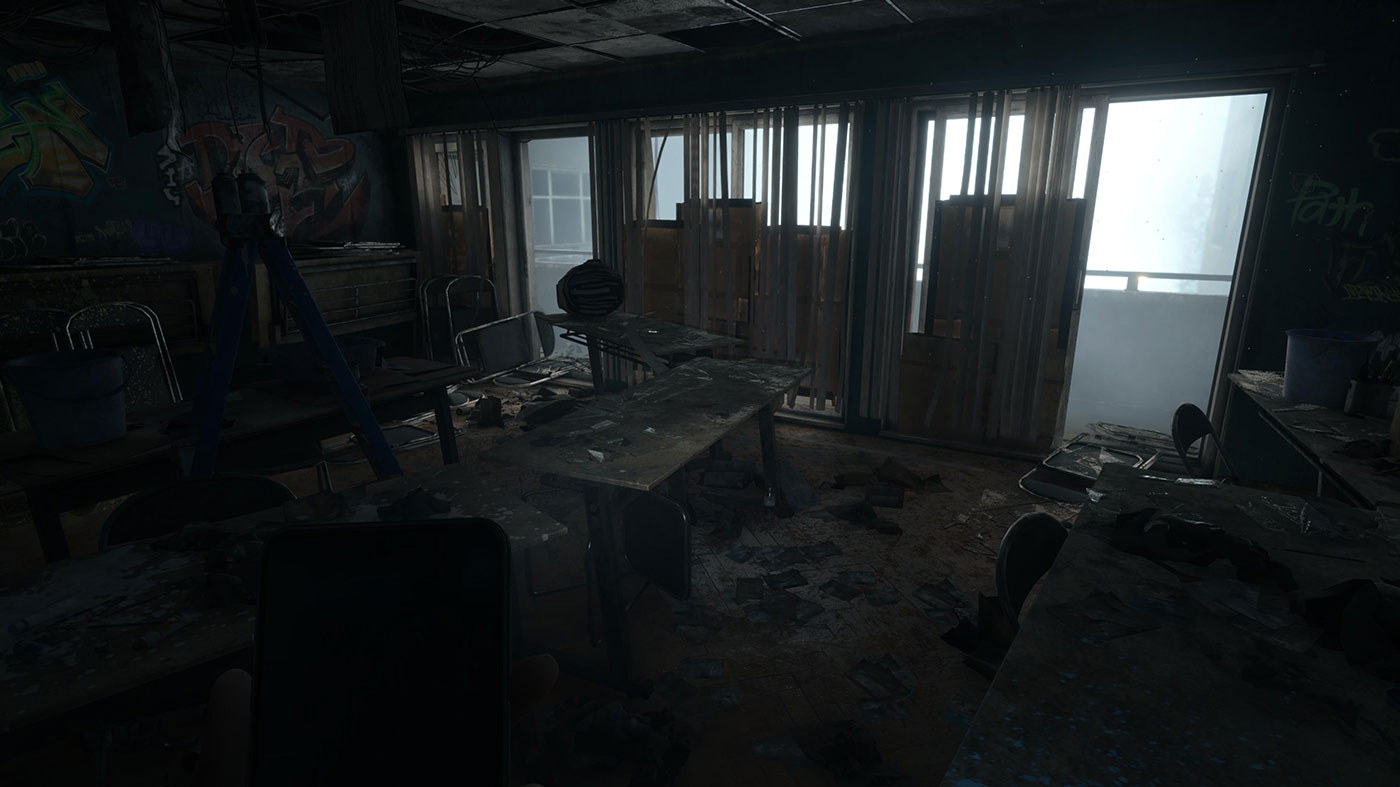
Perhaps encouragingly, but also not, is that the only things that stand out most about The Short Message are the elements created by the minds that worked on the original games. Masahiro Ito, primarily known as the creature and art director for the first four games, has returned to create the new overworld area and the Sakura Tree monster that chases you through it. While the overworld is familiar, the Sakura Tree monster proves that you can do new things with Silent Hill that still fit the brief. On the same note, Akira Yamaoka, renowned for the music from the series, returns to compose some fantastic tracks that really highlight just how much of his work helps set the scene for a Silent Hill game.
But beyond that, there’s really not much to The Short Message. It’s a serviceable free experience in which I’m sure many will be able to find something to enjoy, especially given the price of entry, but it just doesn’t feel like Silent Hill. That name brings with it so much baggage and so much expectation that I, once again, have to wonder just what Konami’s plan is with the series, given that it clearly has nothing to do with the town or the occult. It feels like they’re just throwing all kinds of concepts at a wall to see what sticks and using the Silent Hill name to get eyes on their projects.
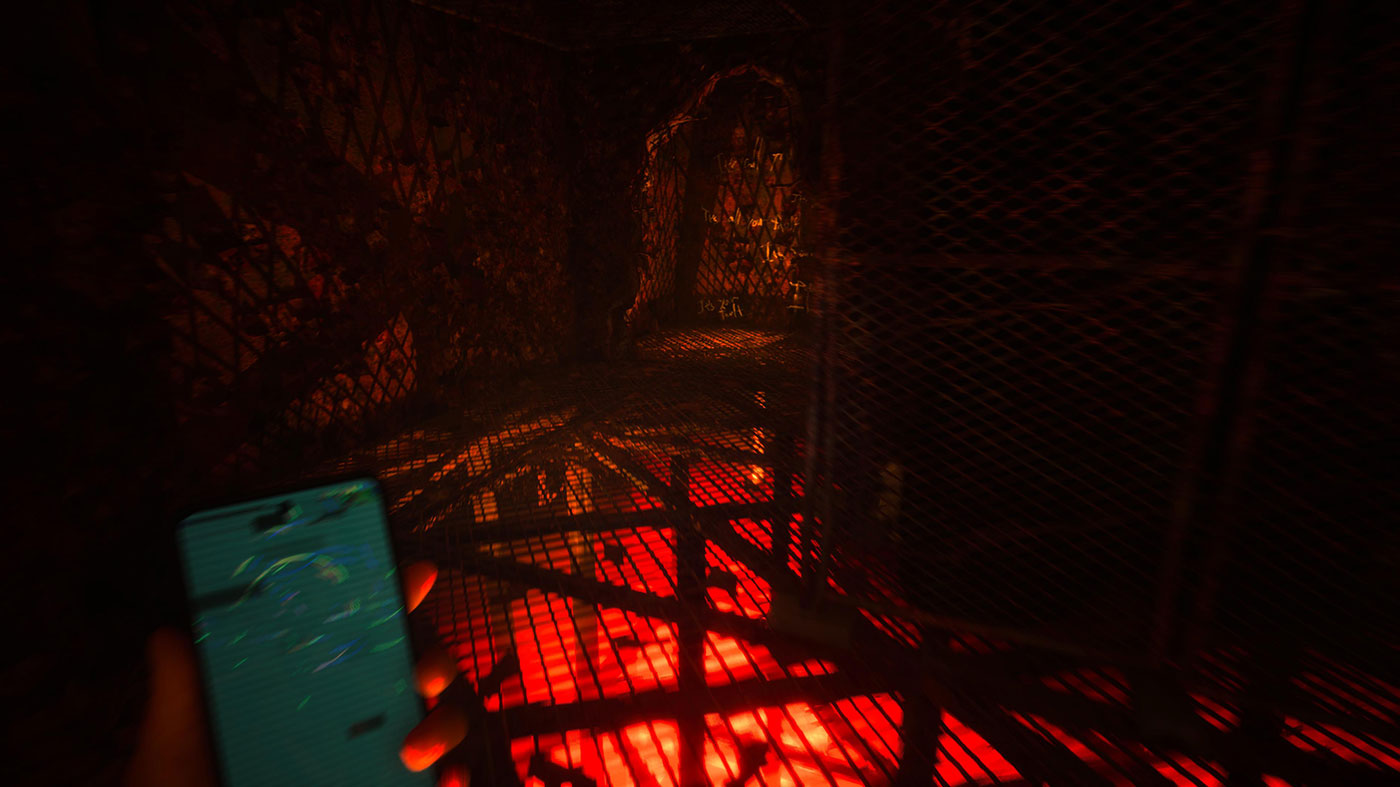
So, while I like elements of The Short Message, it is yet another half-step forward for the franchise. Granted, this is better than whatever Silent Hill Ascension was trying to be, but after experiencing both Ascension and The Short Message, I’m not exactly sure if this Silent Hill monkeypaw is worth it.
Silent Hill: The Short Message is available now, for free, on PlayStation 5.


